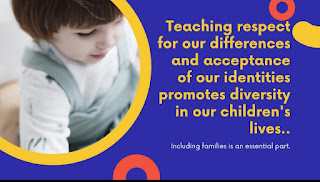Practicing Awareness of Microaggressions
Psychological trauma and microaggressions
Research has demonstrated that microaggressions predict depressive symptoms, anxiety, alcohol abuse, sleep disturbance, physical health problems, suicidal ideas, and low self-esteem. People who suffer microaggressions repeatedly result in greater symptoms of psychological damage as triggers of past memories of discrimination and oppression. Mental health professionals need to consider how microaggressions take part in all levels of the workplace: between colleagues, between racialized groups, and institutionally and advocate for social justice and changes in policies and practice in counseling psychology.
What can you do if you commit a microaggression?
First of all, you need to respond with compassion. Probably you will feel embarrassed, uncomfortable, and stressed. However, it does not make you a bad person. But you need to understand and focus on the injured person rather than yourself. Listen to what the person needs to say with an open heart and an open mind, Be grateful for sharing it with you, and apologize sincerely.
Most of these interactions occur privately, but if the conversation happens in front of other people, keep your response short and try to talk to the injured person privately. At that private moment repeat the tips mentioned previously.
What can we do to prevent these situations?
We need to interact with people that are different from being more cooperative than competitive. We need to develop the ability to work together toward mutual goals. It would help us to be inclusive, and respectful, and promote equal access and opportunities for all. Sharing accurate information about diverse people rather than stereotypes or misinformation increases the awareness of microaggressions. We have to be supportive leaders bringing harmony free of biases and stereotypes developing a sense of interconnectedness with all humanity.
The role of early childhood educators
Early childhood educators need to create safe learning environments making children feel that they belong interrupting microaggressions and messages of damage against other people as soon as it happens. Addressing microaggressions in children helps them identify discrimination and oppression when it occurs. As adults, we need to model respect, tolerance, and inclusion for all. For other effective practices to work on diversity with children read Addressing diversity in early childhood settings.
Being aware of microaggressions, microinsults, and microinvalidation is fundamental to changing these practices in our families, in our work settings, and in our classrooms. The unintentional nature of microaggressions occurs from a person that is good and decent and makes it very difficult for them to understand that their comment and behavior was offensive or biased. As educators, we need to learn how to address these kinds of offensive comments and contribute to that change. Educators play a great role in students teaching about psychological trauma caused by microaggressions to identify biases against marginalized groups and be aware of how they interact with them.
References
Harvard Business Review, 2-8.
Nadal, K. L., Erazo, T., & King, R. (2019). Challenging Definitions of Psychological Trauma: Connecting Racial Microaggressions and Traumatic Stress. Journal for Social Action in Counseling & Psychology, 11(2), 2–16. https://doi.org/10.33043/jsacp.11.2.2-16









